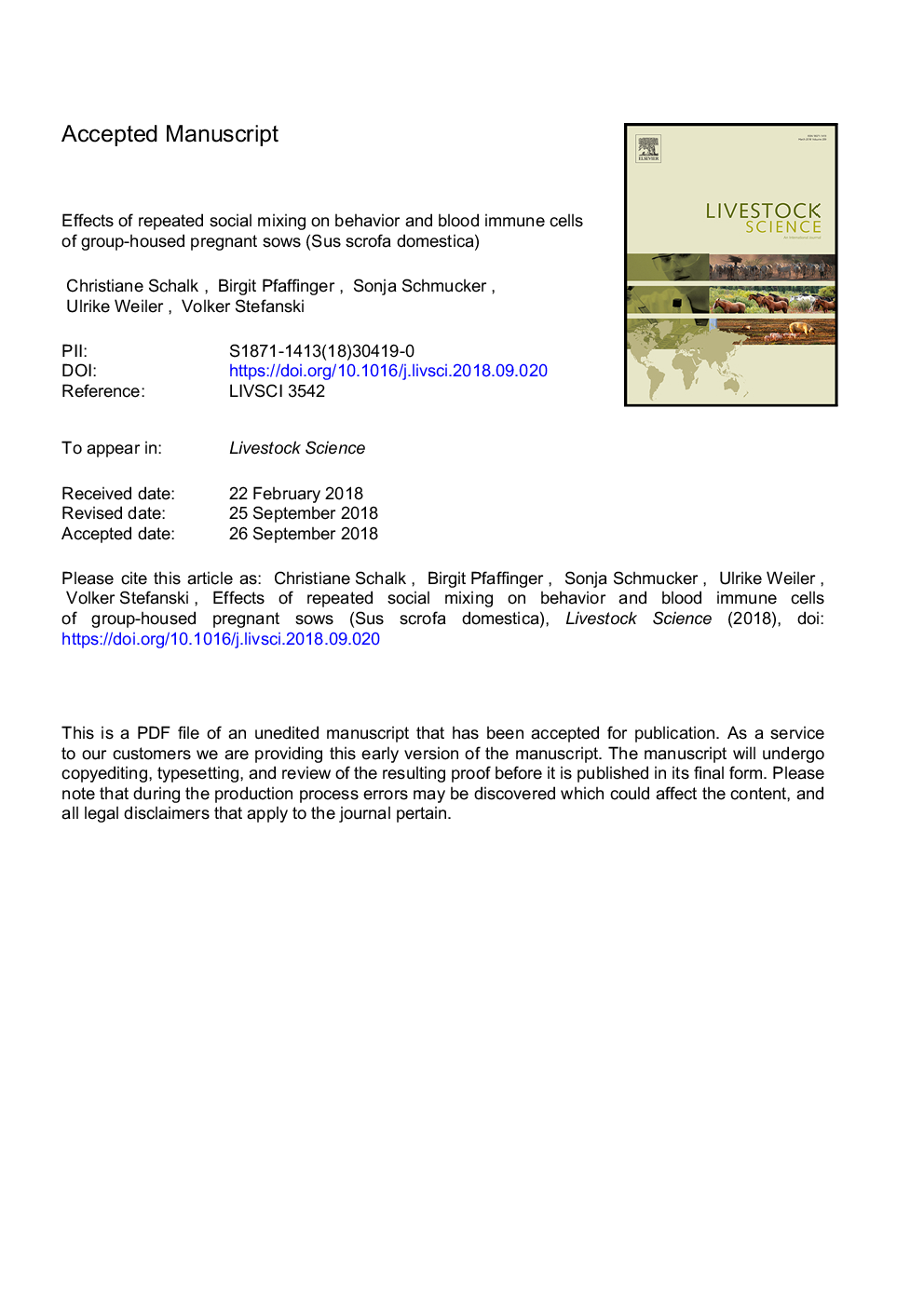| کد مقاله | کد نشریه | سال انتشار | مقاله انگلیسی | نسخه تمام متن |
|---|---|---|---|---|
| 11025849 | 1666506 | 2018 | 39 صفحه PDF | دانلود رایگان |
عنوان انگلیسی مقاله ISI
Effects of repeated social mixing on behavior and blood immune cells of group-housed pregnant sows (Sus scrofa domestica)
دانلود مقاله + سفارش ترجمه
دانلود مقاله ISI انگلیسی
رایگان برای ایرانیان
کلمات کلیدی
موضوعات مرتبط
علوم زیستی و بیوفناوری
علوم کشاورزی و بیولوژیک
علوم دامی و جانورشناسی
پیش نمایش صفحه اول مقاله

چکیده انگلیسی
Commercial housing of sows often involves frequent regrouping (“mixing”) of animals that poses a potential welfare problem due to social stress. Although mixing is a common management practice worldwide, immunological consequences are poorly investigated in pregnant sows. This study combines both behavioral and endocrine data with detailed analyses of blood cellular immunity to examine whether repeated social mixing affects the immune system in pregnant sows, which none of the studies conducted so far could confirm. Pregnant multiparous sows (German Landrace, n =â¯40) were housed in groups of five animals. Sows were either assigned to a repeated social mixing treatment with a mutual exchange of two randomly selected sows of two specific groups (2â¯Ãâ¯2) twice a week over a period of eight weeks, or remained undisturbed in their original group. Blood samples of all sows were collected at five time points before, during, and after the mixing period to evaluate the distribution of blood lymphocyte subpopulations, mitogen-induced lymphocyte proliferation and plasma cortisol concentrations. Mixing caused higher levels of aggressive behavior (p ⤠0.05) during the entire mixing period. Compared to pre mixing baseline values, lymphocyte numbers were lower in mixed sows (p ⤠0.05), which was primarily caused by lower antigen-experienced T helper cells, cytotoxic T cells and natural killer cells. Mixed sows showed a higher proliferative response of lymphocytes while granulocytes and cortisol concentrations were not affected (p > 0.05). Repeated social mixing thus not only resulted in an increase of aggressive behavior, but also in altered immune cell numbers of the adaptive immune system, even though sows became eventually familiar with each other. These findings suggest, in contrast to previous studies, an adverse influence of frequent mixing on the immune system of pregnant sows.
ناشر
Database: Elsevier - ScienceDirect (ساینس دایرکت)
Journal: Livestock Science - Volume 217, November 2018, Pages 148-156
Journal: Livestock Science - Volume 217, November 2018, Pages 148-156
نویسندگان
Christiane Schalk, Birgit Pfaffinger, Sonja Schmucker, Ulrike Weiler, Volker Stefanski,